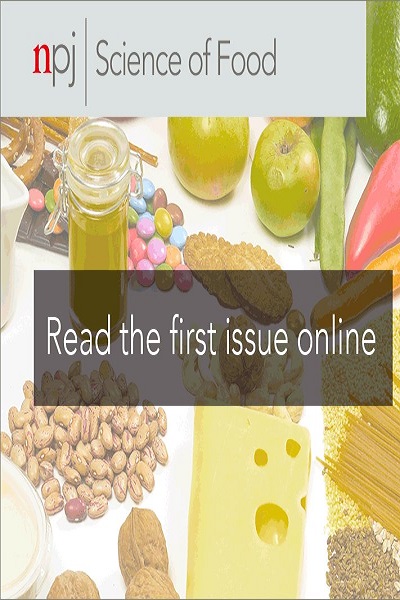地中海菜肴中为什么用葡萄酒蒸蛤蜊?
IF 6.3
1区 农林科学
Q1 FOOD SCIENCE & TECHNOLOGY
引用次数: 0
摘要
葡萄酒以其丰富的多酚含量而闻名,其中包括白藜芦醇(Res),具有促进健康的功效。葡萄酒清蒸蛤蜊是地中海地区一道广受欢迎的美食,凸显了葡萄酒作为一种关键配料的作用。然而,尽管白藜芦醇有这些益处,其较低的生物利用率却带来了挑战。与蛤蜊一起蒸煮的过程能否改变葡萄酒中白藜芦醇的消化命运?与葡萄酒和游离白藜芦醇溶液相比,本研究探索了淡水蛤蛋白多糖基纳米颗粒(CFNPs)作为一种递送载体提高白藜芦醇稳定性和生物利用率的潜力,旨在阐明促进白藜芦醇吸收的机制。结果表明,CFNPs 能有效包囊 Res,包囊效率超过 70%,粒径均匀,为 70.5±0.1 nm(PDI本文章由计算机程序翻译,如有差异,请以英文原文为准。


Why are clams steamed with wine in Mediterranean cuisine?
Wine is renowned for its rich content of polyphenols, including resveratrol (Res), known for their health promoting properties. Steamed clam with wine, a popular Mediterranean delicacy that highlights the role of wine as a key ingredient. However, despite these benefits, resveratrol’s low bioavailability poses challenges. Could the process of steaming together with clam alter the digestive fate of resveratrol from wine? This study explores the potential of proteoglycan-based nanoparticles from freshwater clam (CFNPs) as a delivery vehicle for enhancing the stability and bioavailability of resveratrol, compared with wine and free Res’ solution, aiming to elucidate mechanisms facilitating Res’ absorption. The results demonstrated that CFNPs can effectively encapsulate Res with an efficiency over 70%, leading to a uniform particle size of 70.5±0.1 nm (PDI < 0.2). Resveratrol loaded in CFNPs (CFNPs-Res) exhibited an improved antioxidant stability under various conditions, retaining over 90% of antioxidant capacity after three-day storage at room temperature. The controlled-release profile of Res loaded in CFNPs fits both first and Higuchi order kinetics and was more desirable than that of wine and the free Res. Examined by the simulated gastrointestinal digestion, CFNPs-Res showed a significantly higher bioaccessibility and antioxidant retention compared to free Res and the wines. The discovery and use of food derived nanoparticles to carry micronutrients and antioxidants could lead to a shift in functional food design and nutritional advice, advocating much more attention on these entities over solely conventional molecules.
求助全文
通过发布文献求助,成功后即可免费获取论文全文。
去求助
来源期刊

NPJ Science of Food
FOOD SCIENCE & TECHNOLOGY-
CiteScore
7.50
自引率
1.60%
发文量
53
期刊介绍:
npj Science of Food is an online-only and open access journal publishes high-quality, high-impact papers related to food safety, security, integrated production, processing and packaging, the changes and interactions of food components, and the influence on health and wellness properties of food. The journal will support fundamental studies that advance the science of food beyond the classic focus on processing, thereby addressing basic inquiries around food from the public and industry. It will also support research that might result in innovation of technologies and products that are public-friendly while promoting the United Nations sustainable development goals.
 求助内容:
求助内容: 应助结果提醒方式:
应助结果提醒方式:


